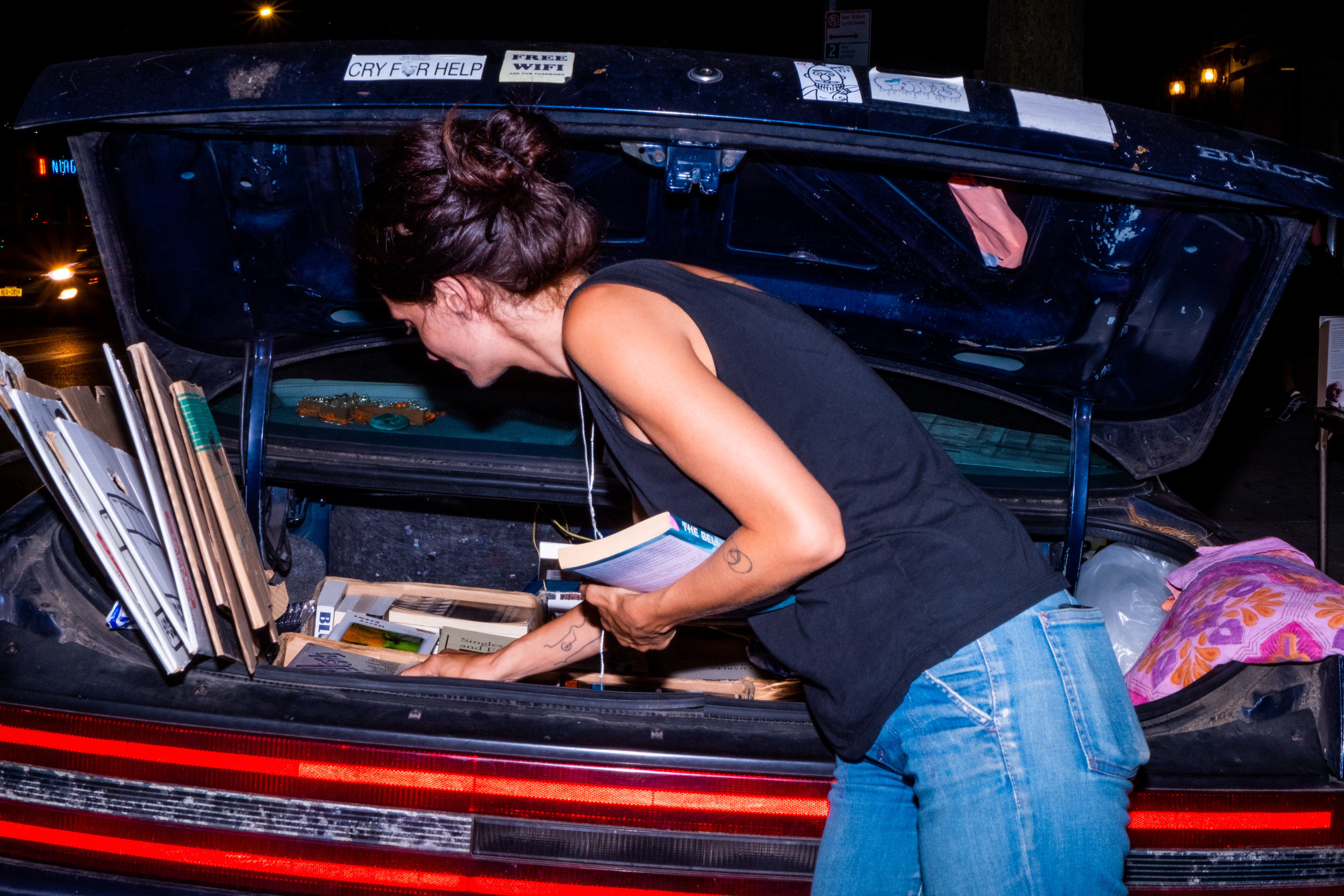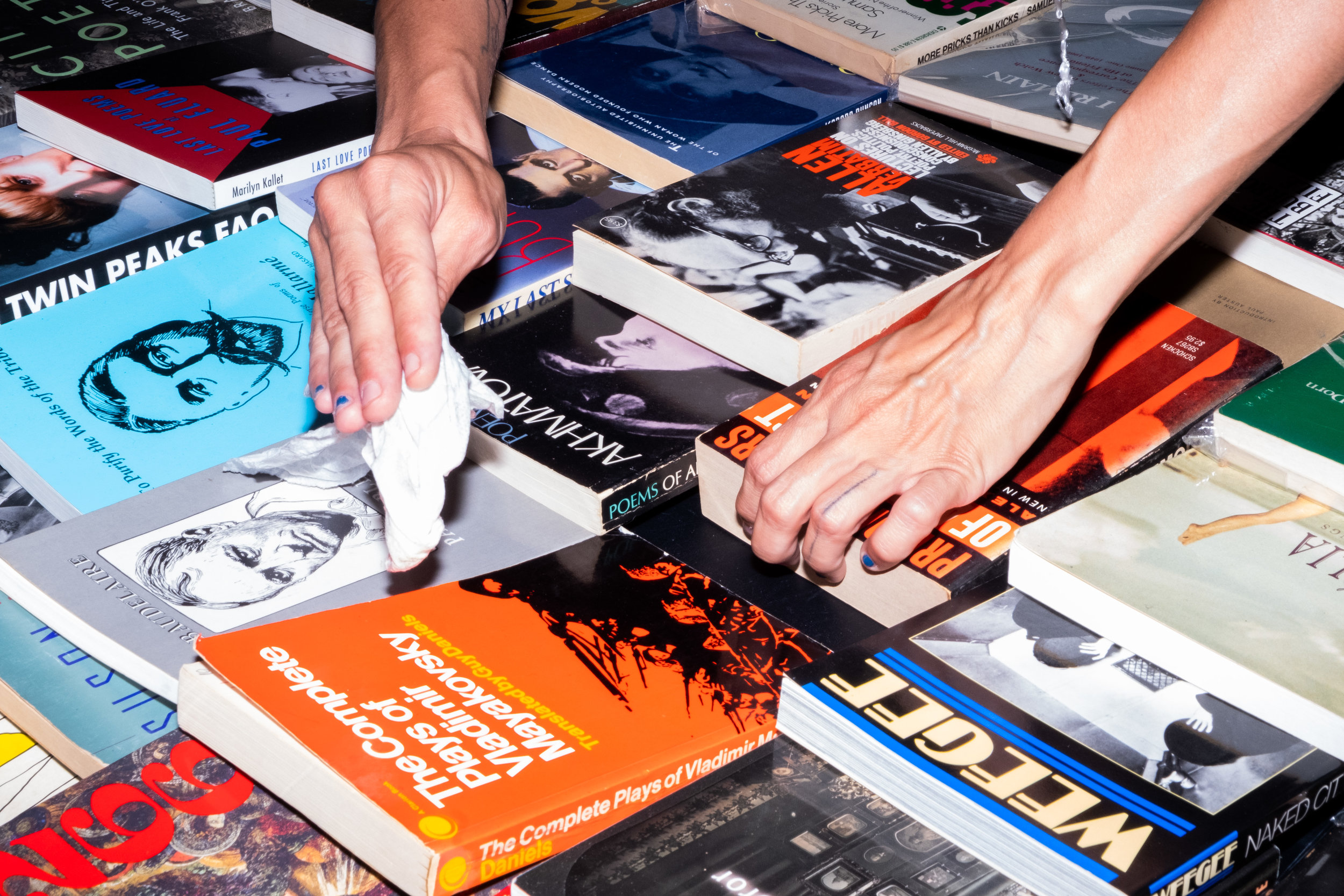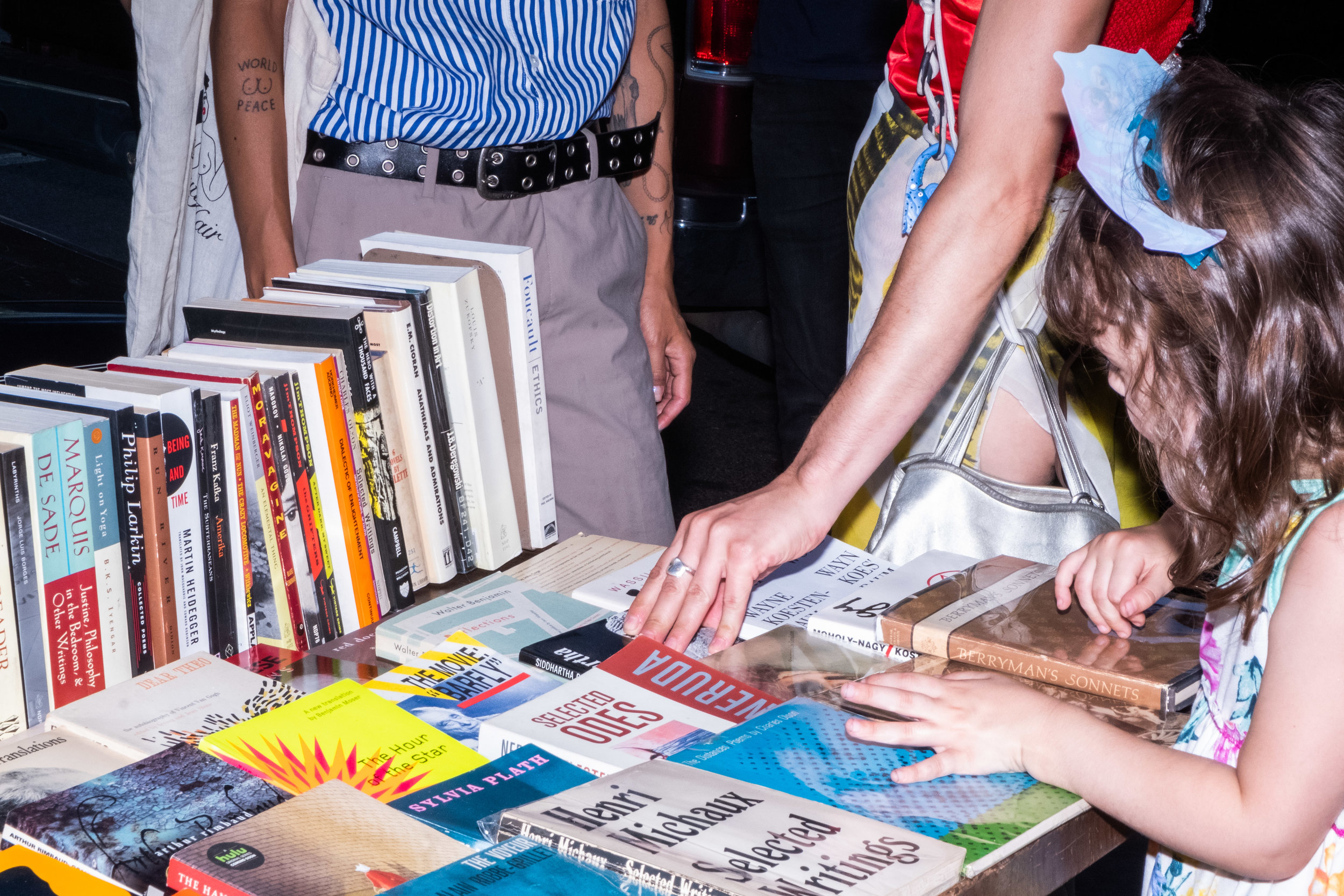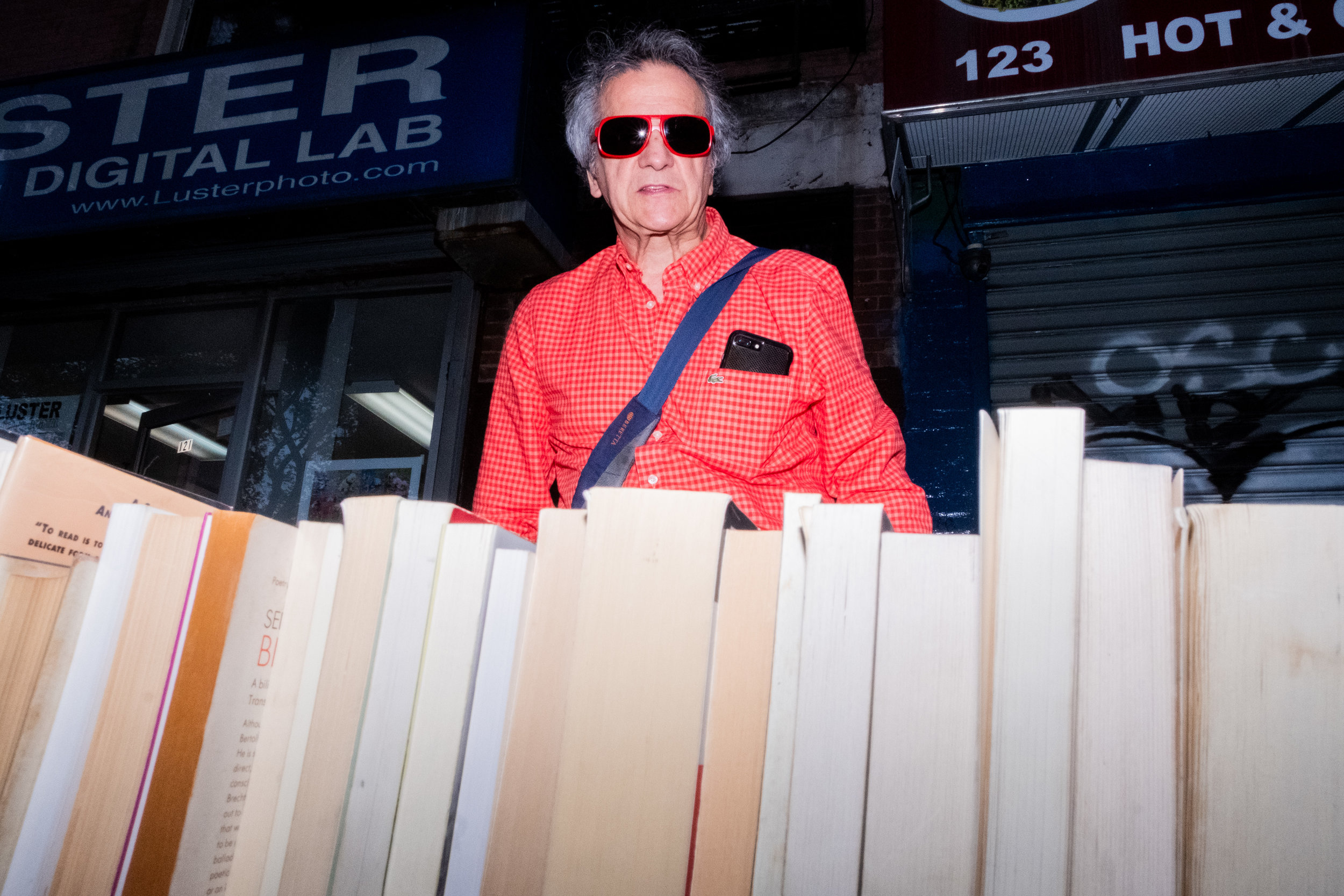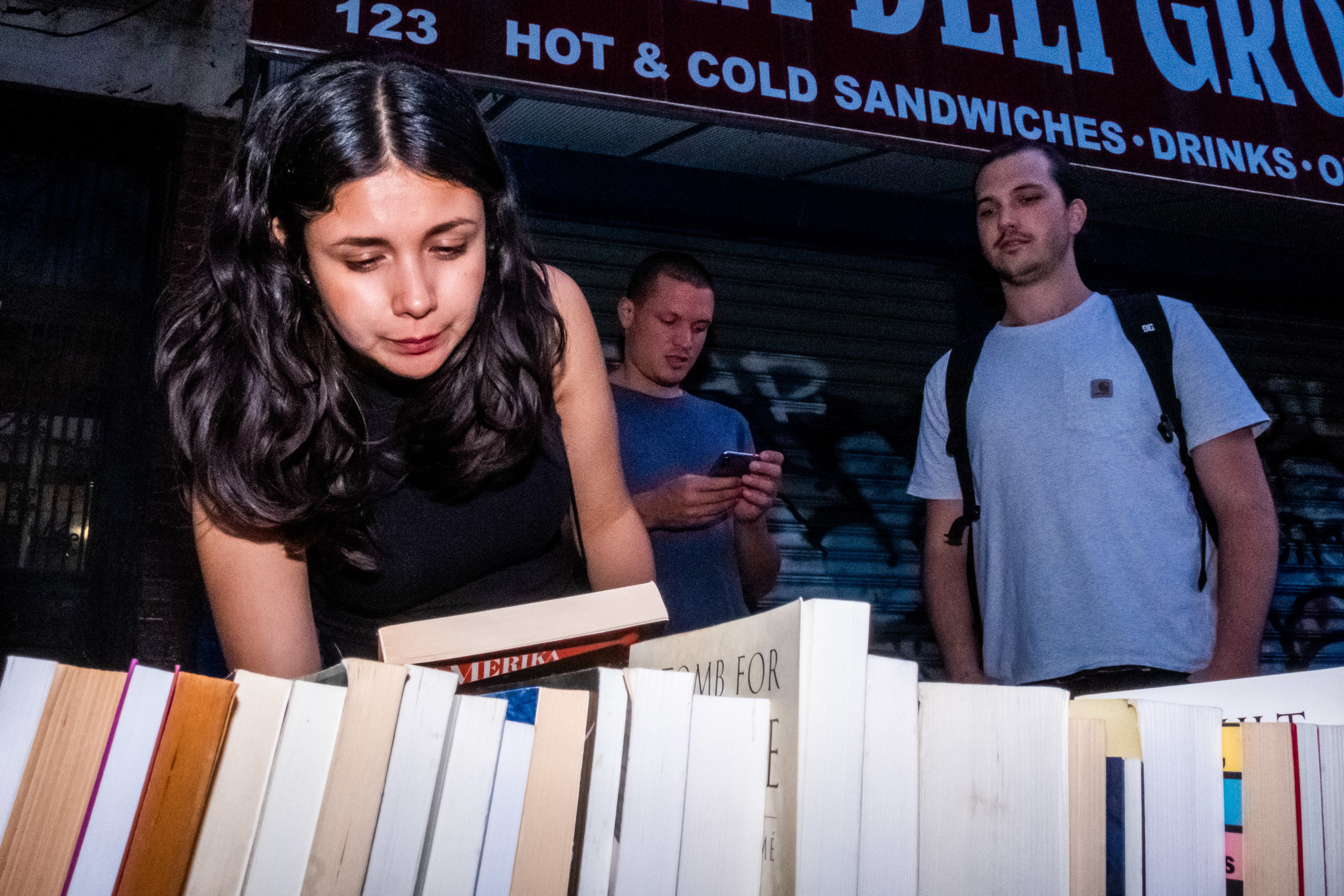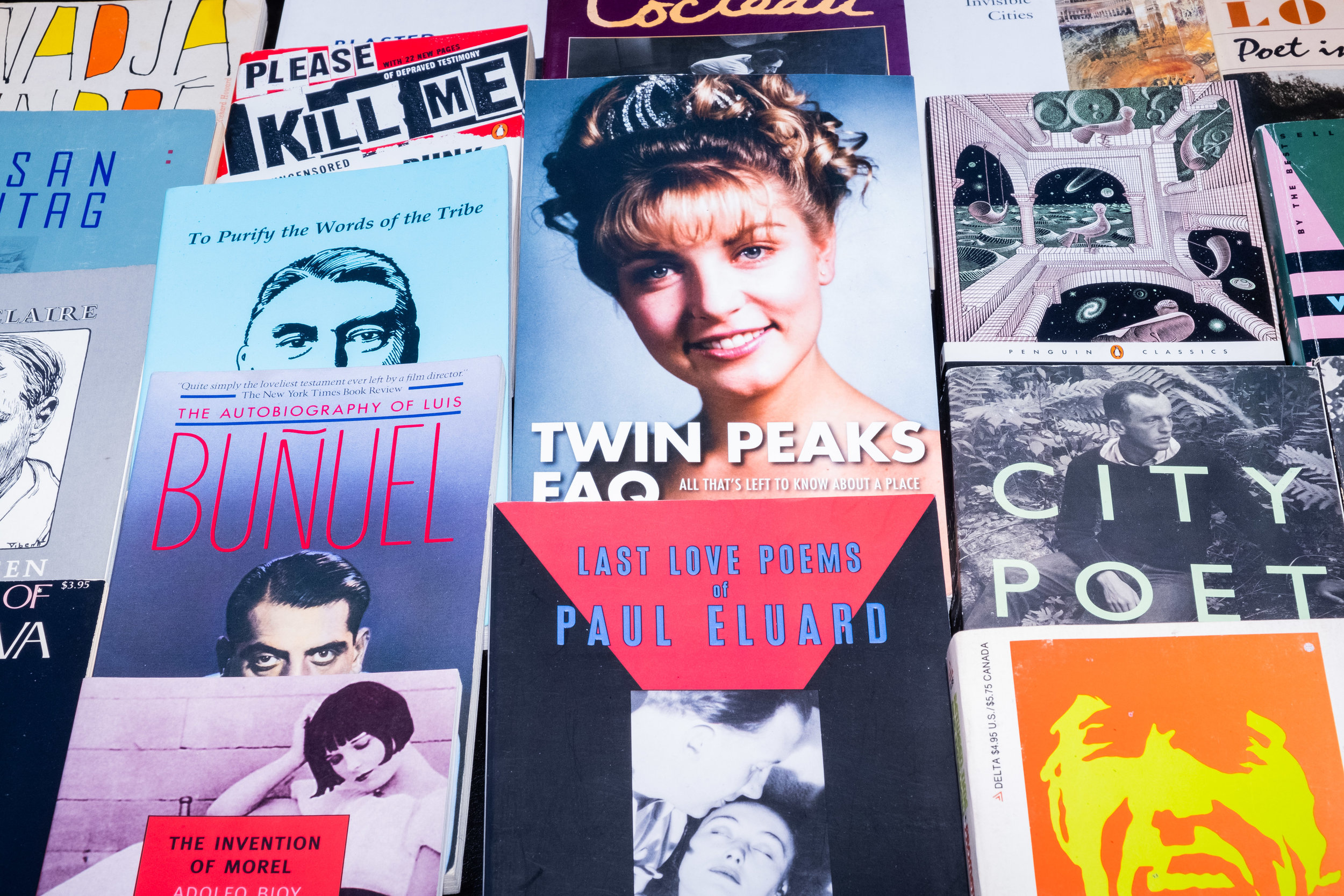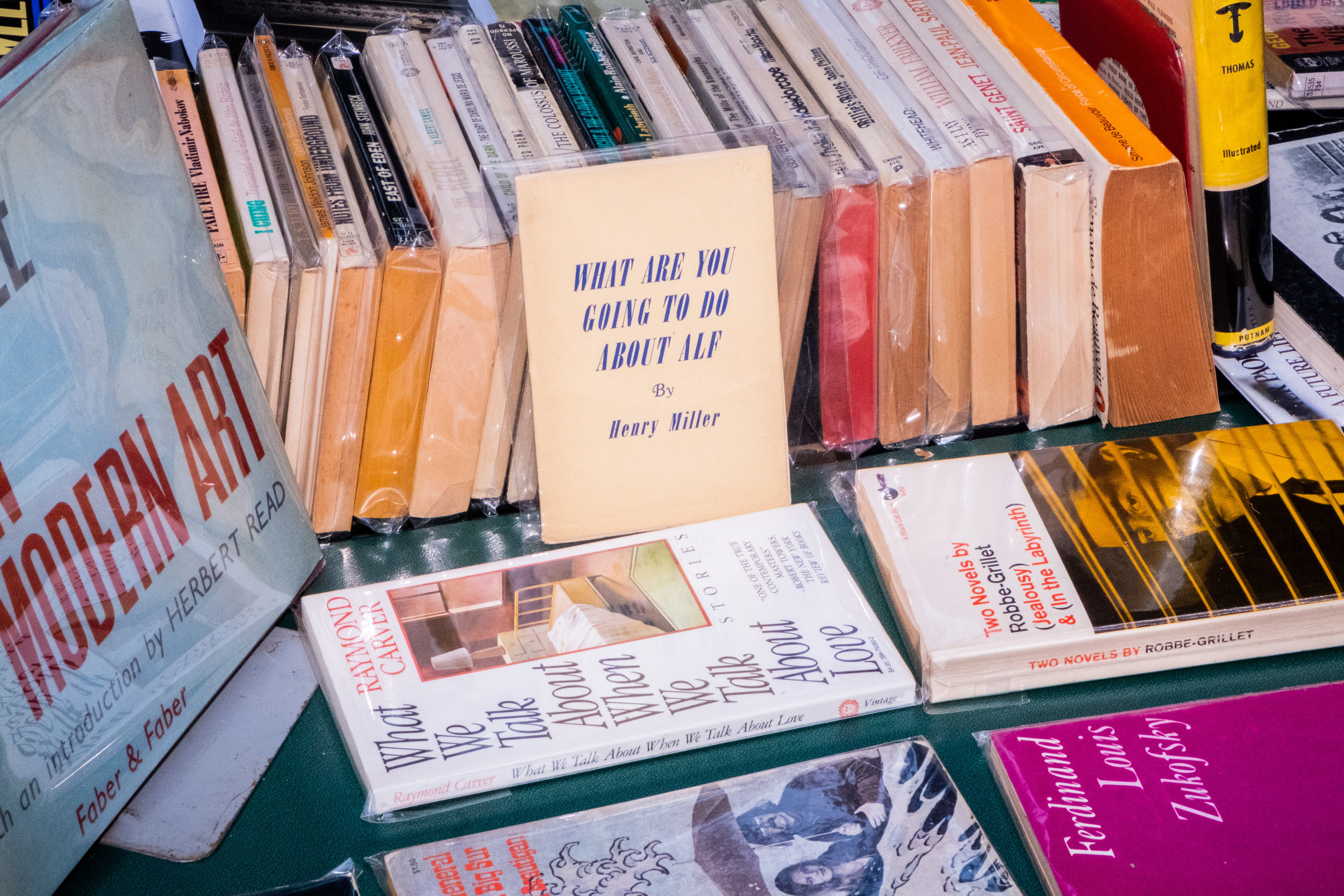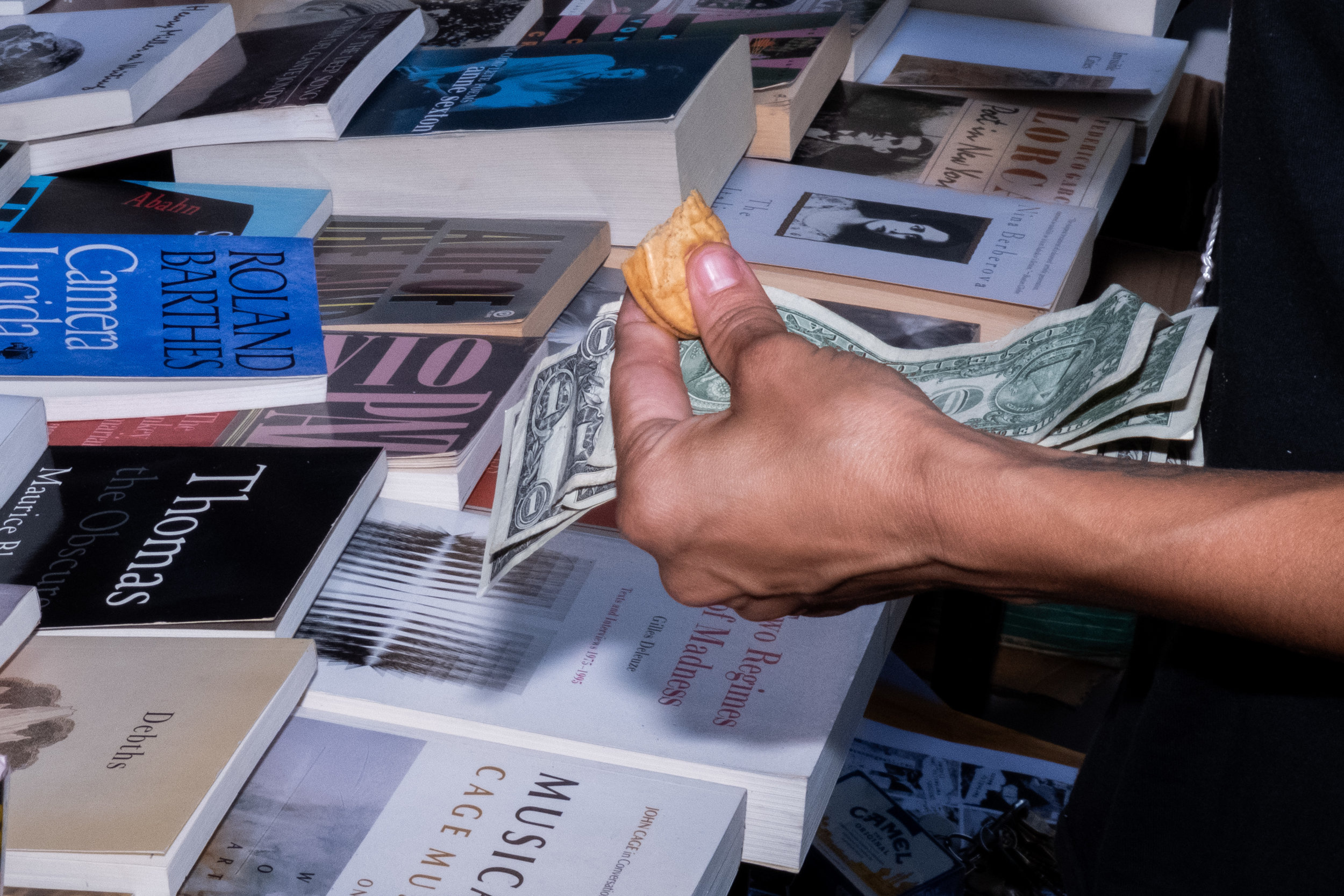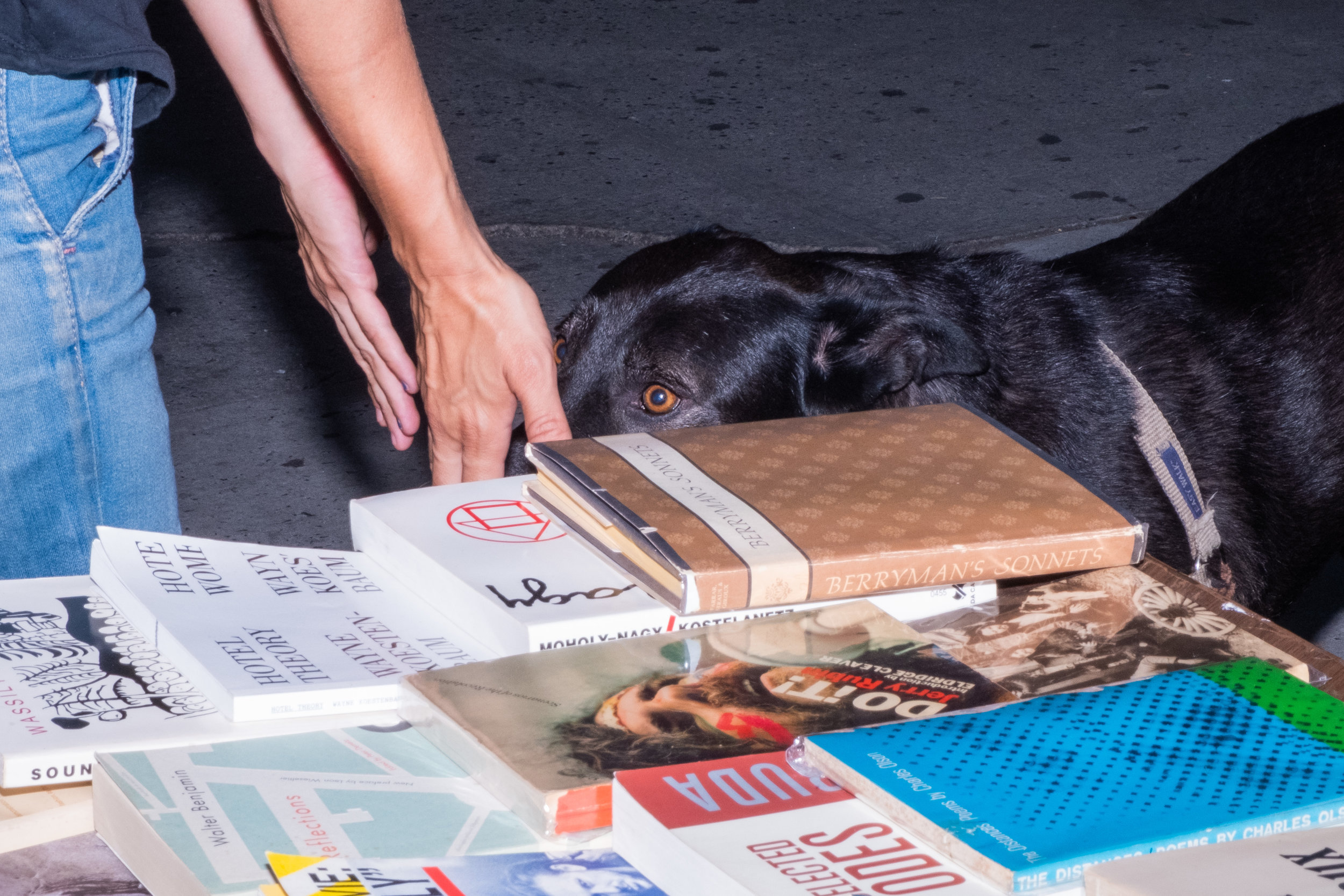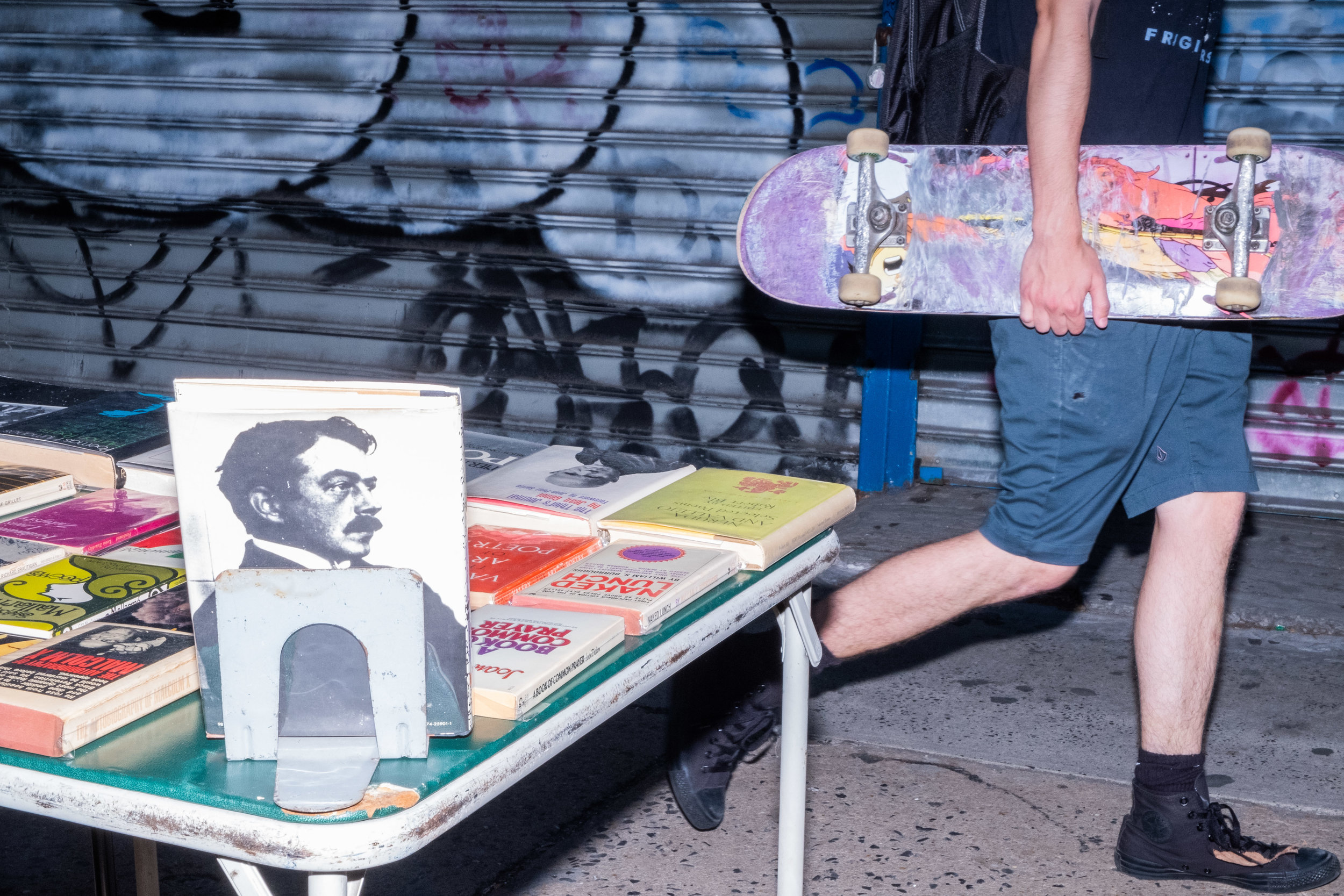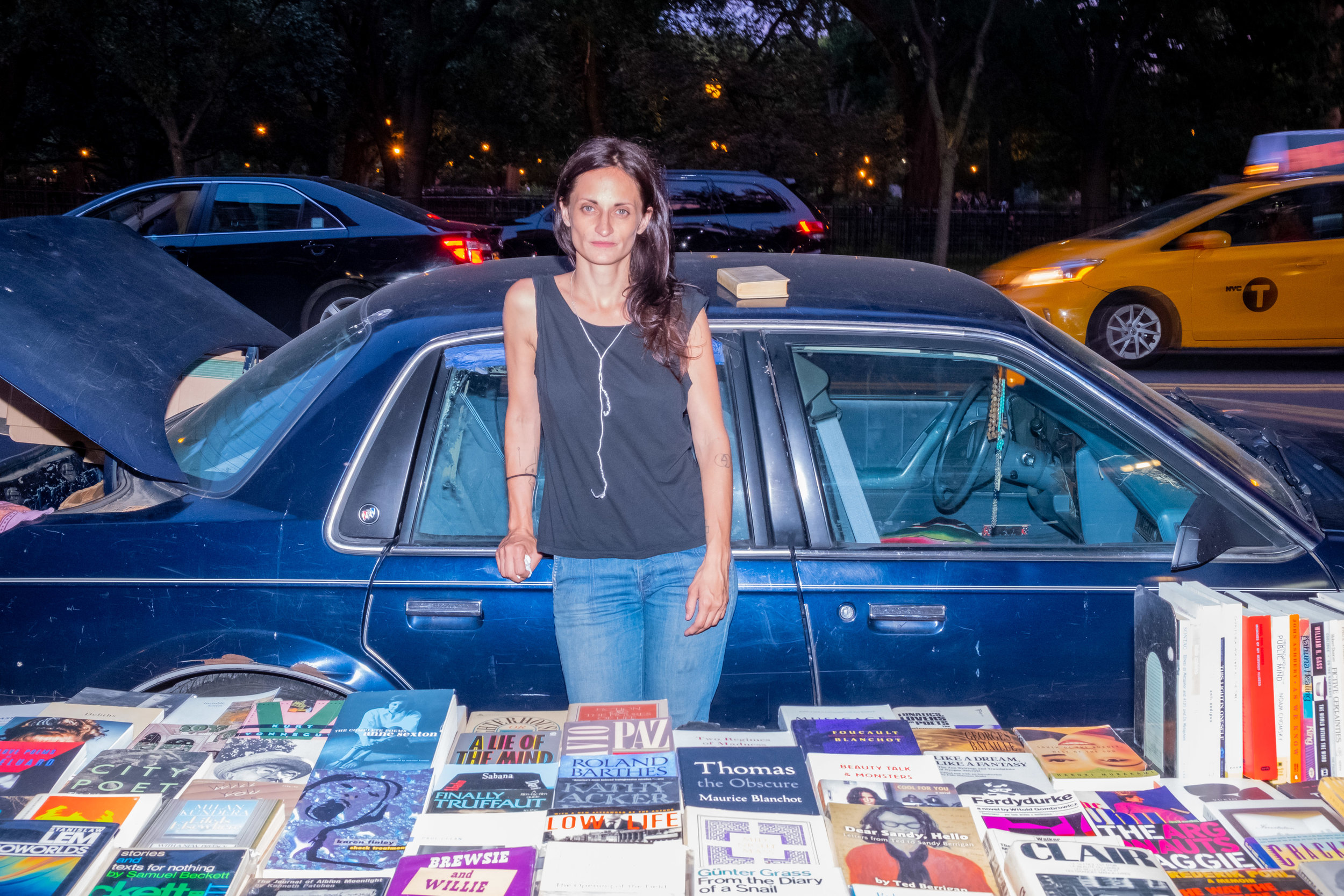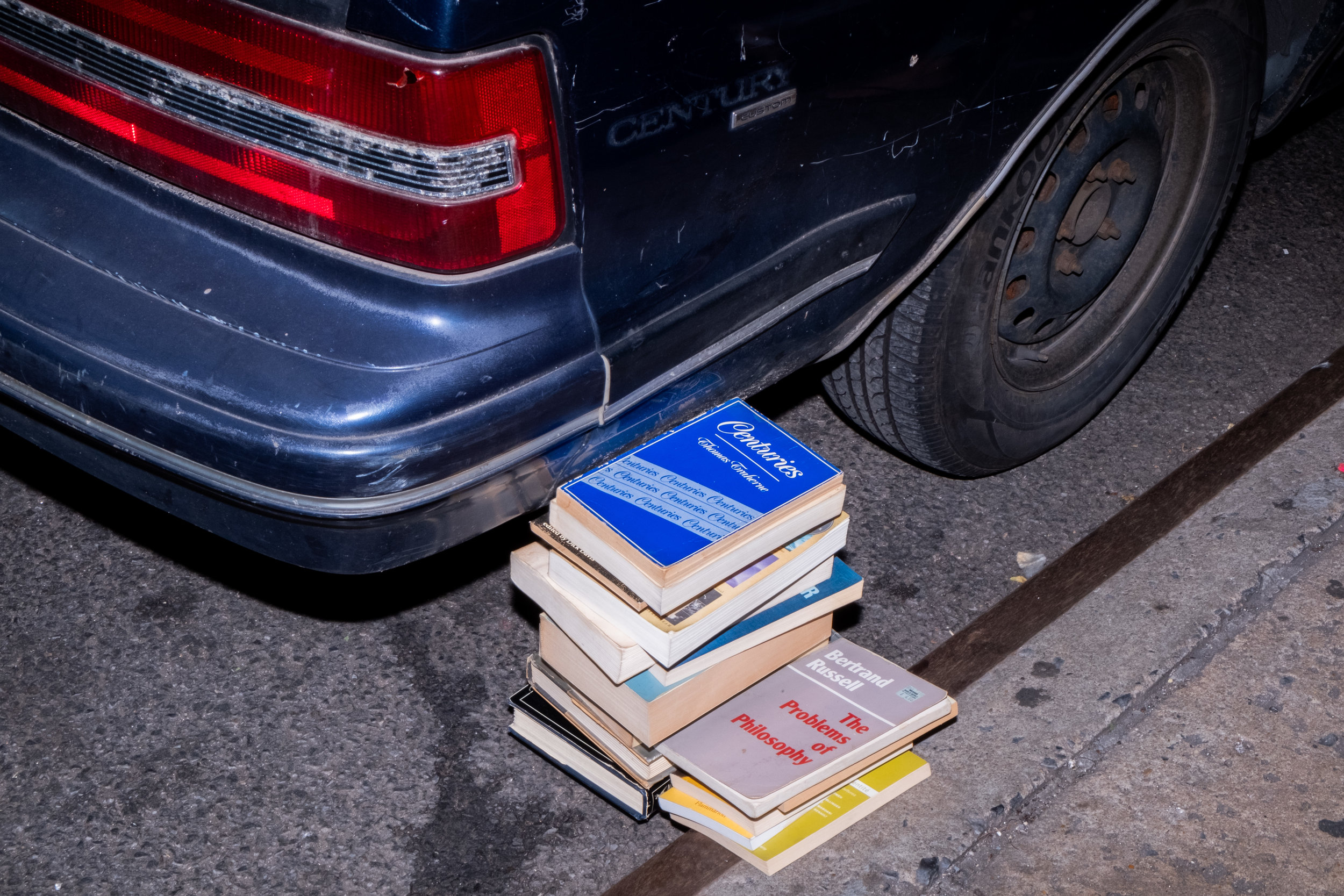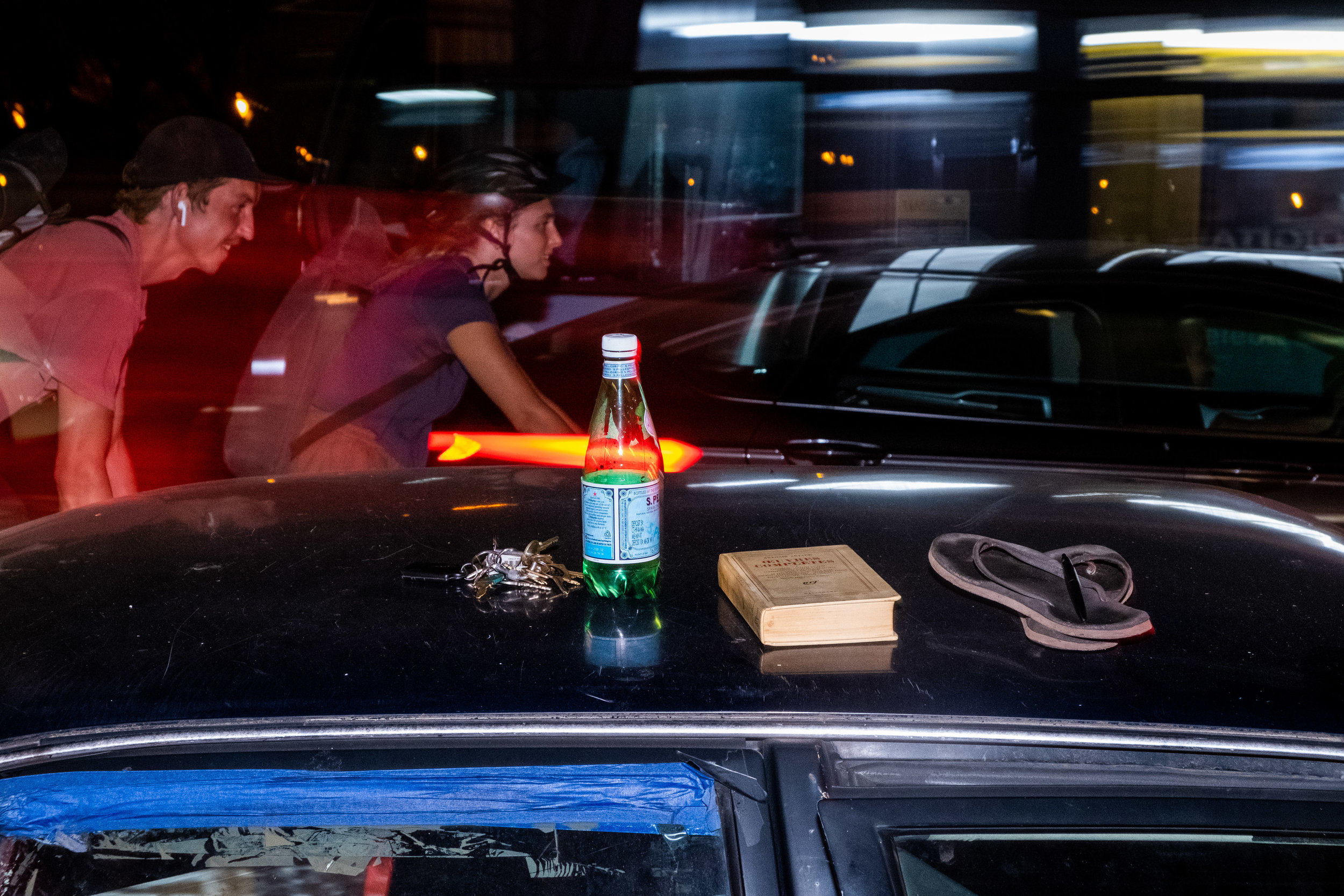INTERVIEW WITH A BOOKSELLER
BEN FAMA WITH VORTEXITY BOOKS’ JEN FISHER
PHOTOS BY LUCIA BURICELLI
Photos: Lucia Buricelli
Jen Fisher is a poet and sidewalk bookseller in the East Village on Avenue A near St. Marks. She recently spoke to poet Ben Fama, whose most recent book Deathwish was published by Newest York Arts Press in June, about her wares and why she loves them. She and her bookstore were photographed by Lucia Buricelli, who previously photographed Christmas trees for Newest York.
Ben Fama: Jen, you seem to be living a dream many have: to work among books, to trade and sell them, to perpetuate the lives and scope of books. People love books for all kinds of irrational reasons. How did you start selling books and why do you keep doing it?
Jen Fisher: I suppose we are all living in dreams. For example, today my dreams hurt so bad I wanted to escape the sun. The dream world is funny like that, so open to so many possibilities.
I tell you this because sharing and living within our dreams everyday, despite their unexpected turns, is very important. Through my role as a book seller on the streets of NYC, I am lucky enough to have a platform to listen to people tell me about their dreams. To listen to people’s dreams spoken out-loud is a profound experience. It is the oral tradition of storytelling: the movement of conversation and how it changes depending on the energy of the listener and the day.
I enjoy sharing stories as well. Books are this. Books bring this out. Each of us have different ways of experiencing these very "concrete" objects. I am not certain how books are important to each person but I suppose some like to read them for information, inspiration, or use them as talisman or eye candy. One thing I do know for sure is that I've never heard a book having the exact same effect or incarnation in two people, no matter how many times I've sold the same title. It's interesting, to me, to watch people come to the table with certain stories and ideas and leave with different ones.
I am not alone in this dream. Anyone can participate. Anyone can share in it.
To be candid, through sharing books you can be within a constant state of your dreams — and everyone else's — and allow what can be the harsh reality of life to slip away. I will be so bold to say that sharing books with people is an orgasmic experience. Books are quite lovely creatures, so powerful in so many ways.
BF: I worked at The Strand booth in Central Park for a summer. It was a bit of a dream: I got to follow the day's rhythms quite literally. We opened in the mornings to catch commuter foot traffic, sat out all day, and closed around dusk. It didn't matter what time it was. And the type of people who stopped by weren't in a consumer space. They were flaneuring, or maybe in-between shopping stops, or getting ice cream, or going to smoke a joint in the park.
I want to ask a more direct question. What types of books do you sell? Any recurring titles you always put out?
JF: Ha! This is question that I get a lot. The second year I made a rule (I have about three rules) and one of them is to only work with books you love or have a strong feeling or interest in, which could also mean a book I want to learn more about or even despise. This may seem limiting, but actually it opens up the opportunity for much more rich conversation with people.
I am not a brick and mortar, which means the space I have to work with is limited to the sidewalk, the amount that can fit in the Buick, and the space in my apartment. I am also with the books the whole time and I find it quite boring to have lengthy discussions about books I am not turned on or off to in any way.
If you love, truly love, what you are doing, then it's more exciting. I have found that by starting out with the books I already loved, it started an intense chain of gathered knowledge. People will say for example, "Well, if you love Artaud, perhaps you would love Lecomte" or if you've read this, then perhaps you would enjoy that. It is a beautiful thing to think that over the last five years (going into the sixth), the table has changed and been built by the people in the neighborhood. The bookstand is a community project, and it is there to serve the people. It is a place to talk, browse, buy or just hang out.
The best part, as you mentioned above, is that you are dealing with everybody. And everybody is welcomed. It's fun to joke that Vortexity Books is the only "book store" you can smoke in. I always try to listen to everyone, and when they tell me something that piques my interest, I always write it down in a little notebook. And when I go scouting for books I will specifically look for those authors that are on that list.
I will also admit that I tire of books/authors and I put them into retirement or what I'd like to think of as a "bar," where they all hang out together drinking until they make it back to the table. Some have been in that "bar" for five years, and some come and go. Some books have appeared hundreds of times and some less frequently. There are some books I wish I could sell but have never found them in the world used, and there are some books that when they leave, I think, "Yup, I will never see that one again." But it's worth it, and who knows if it'll find its way back.
Of course, I love to keep poetry, literature, film books, art books and philosophy, but also any book that feels good makes the cut. As a writer myself, I know all books have potential and can be inspiring, so if I see a good book on bees, for example, I pick it up. I always figure if i'm interested in it, then there's a good chance that at least one other person will be, too. Besides, the worst that happens is if it doesn't sell I can add it to my personal library. The sharing of books is fueled with so many exciting emotions and I am lucky to be a part of this very traditional New York City way of moving them through the world.
BF: Lastly, can you talk a bit about the mutual aid among you and your neighboring business and residents, and also the self-organizing elements of working on the sidewalk on Avenue A?
JF: The surrounding businesses are a huge part of the support and the reason I am still around. We are always checking in with each other about what's going on. It feels like any natural relationship you would build with people when you work around them long enough. I am very lucky to have Luster to my left and Al Pastor to my right, on the corner. They are both very kind to me and I truly care about the people that work there.
Unfortunately Tony, who ran the bodega for several decades right in front of where I set up, died suddenly at the end of the season last year. Some days it still feels hard not having him there, because we had built such a close relationship. The residents are the saving grace. Without them, there is no community. Some, most, of the closest relationships I have in NYC have been built on the street. I love the variety of people I get to see everyday. I've worked five and a half years out of the eight I've been in NYC on the street at Avenue A and St. Marks so I feel like it's my home, a safe place.
As far as organizing goes, I think everyone has their own systems. I have a lot of personal superstitions and rituals that are done each time I work, to maintain a sense of order. Of course they shift with time, but I need them to feel grounded. You also have to be hyper-sensitive to your own emotions and others and really pay attention to what's going on. And you have to trust your instincts. It's also very important to listen to the energy of the city, because each day, each minute is so different.


